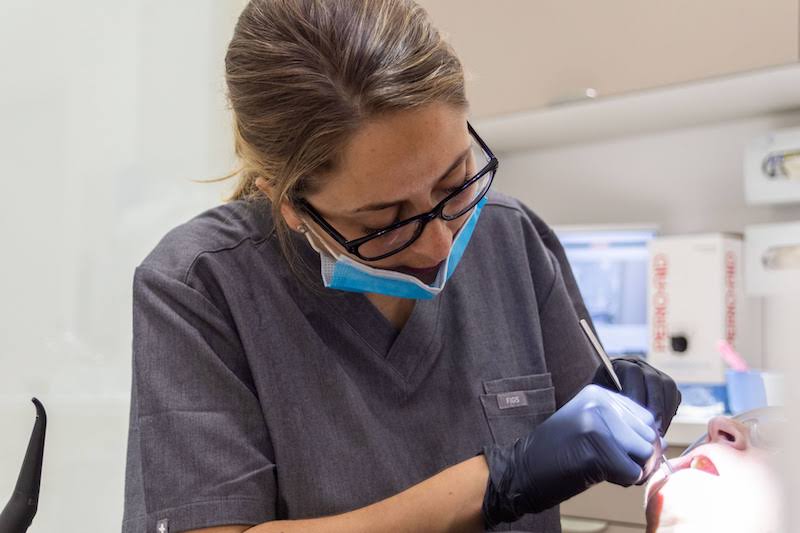Periodontitis or periodontal disease is an infectious and progressive disease, produced by bacteria that affects the gums, the tissues that hold the tooth and the bone, and that can cause the loss of the piece. It is estimated that one in three Spaniards suffer from some type of periodontal disease, which is why it is important to know the symptoms of periodontitis.
At Advance Dental Institute we are experts in periodontal disease, which is why this blog is going to give you a few keys so that you can recognize periodontitis in time and stop it.
Symptoms of periodontitis
It should be noted that, on some occasions, periodontal disease or periodontitis can run its course without symptoms. That is why it is advisable to go to periodic reviews, where these types of problems can be detected. However, in many cases there are symptoms and you have to be vigilant. Here are some of them.
Bleeding gums: If every time you brush or floss your teeth you notice a little bleeding in your gums, watch out and go to the dentist. This can indicate inflammation of the gums or gingivitis, which if left untreated ends in periodontitis.
Pain in the gums. If your gums hurt, your notes are red or inflamed, you may have periodontitis. To avoid this, brush your teeth regularly and floss all your teeth after brushing. If you do not notice improvement, go to your trusted dentist.
Bad breath. One of the most frequent causes of halitosis is that many people forget to clean their tongue, which has a multitude of bacteria. However, another cause is that the remains of food that remain in the interdental spaces are not removed, they rot and begin to smell. If this happens, it means that you have food remains on your teeth, or in gum pockets, something that can cause periodontitis.
Notice the root of the tooth. It is possible that you see that the root of the tooth is more and more visible, and that your pieces have a more elongated appearance. This means that you are suffering from gingival recession, and the most likely cause is periodontitis.
Tooth mobility. If you have begun to notice that your teeth begin to move, it is very likely that you have advanced periodontal disease, and that it is affecting the tissues that support the bone. It is vital to go to the dentist quickly to receive a diagnosis by experts in periodontics.
As you can see, it is very important to go to the dentist periodically to be able to tackle periodontal problems and to be able to keep as many teeth as possible, guaranteeing oral health.







